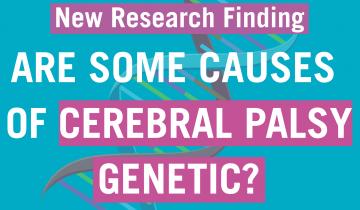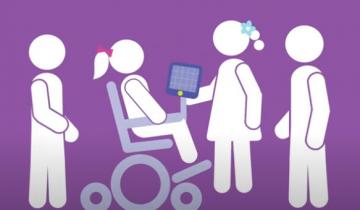This study highlights the importance of monitoring and managing chronic conditions in adults with cerebral palsy. It also provides important information that can help healthcare professionals better understand the health needs of this population.
In cerebral palsy (CP) muscles are often shortened so much that they restrict joint range of motion and the muscles themselves are weak. Thus, ‘shortness’ and ‘weakness’ are two important needs that clinicians must address.
An international study recently published in the journal Nature Genetics has provided the first firm evidence that for a substantial number of people, their cerebral palsy (CP) may be caused by a genetic mutation, or mis-spelling in the body’s DNA blueprint.

"In addition to commonly associated environmental factors, genomic factors may cause cerebral palsy. We performed whole-exome sequencing of 250 parent–offspring trios, and observed enrichment of damaging de novo mutations in cerebral palsy cases."
"Cerebral palsy is primarily a motor impairment so it's really important to look at what the child’s motor function is. Are they developing on the trajectory of a child who has cerebral palsy or are they developing as we would expect a baby to develop? "


